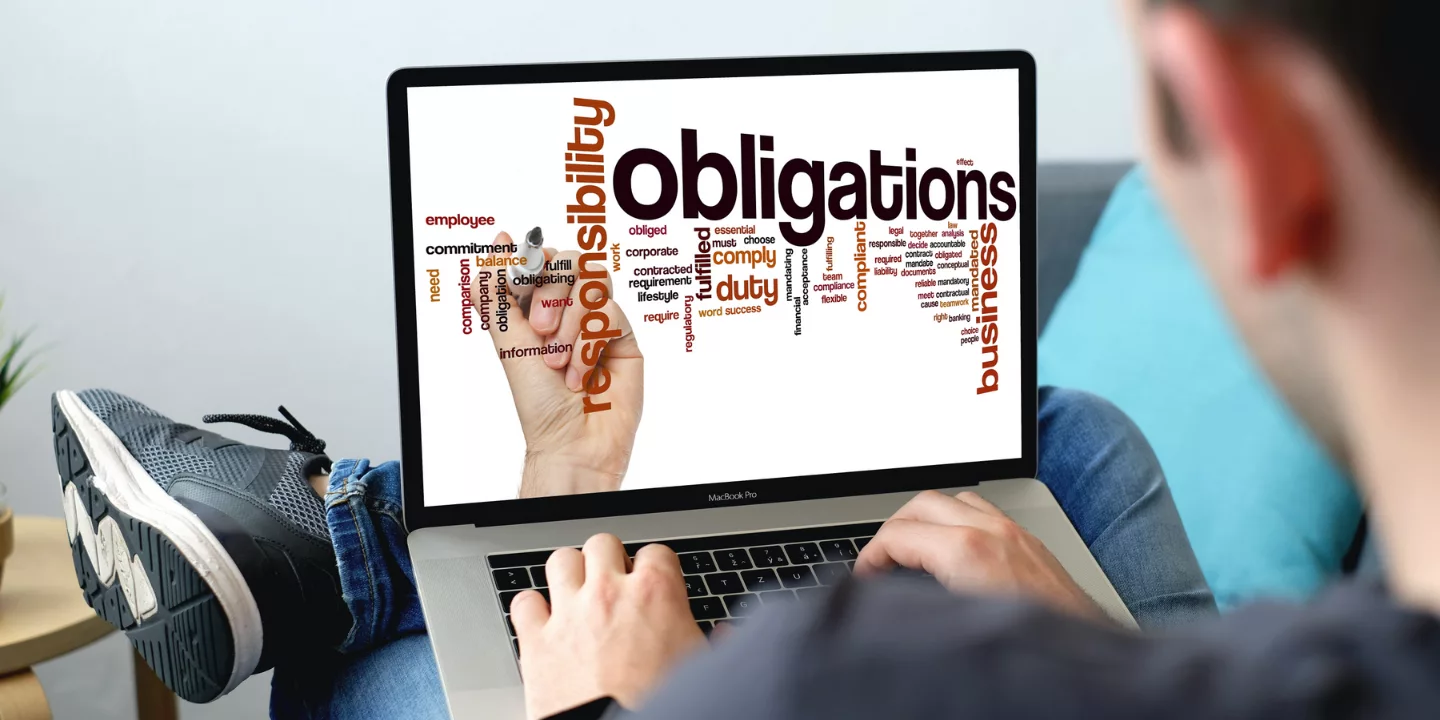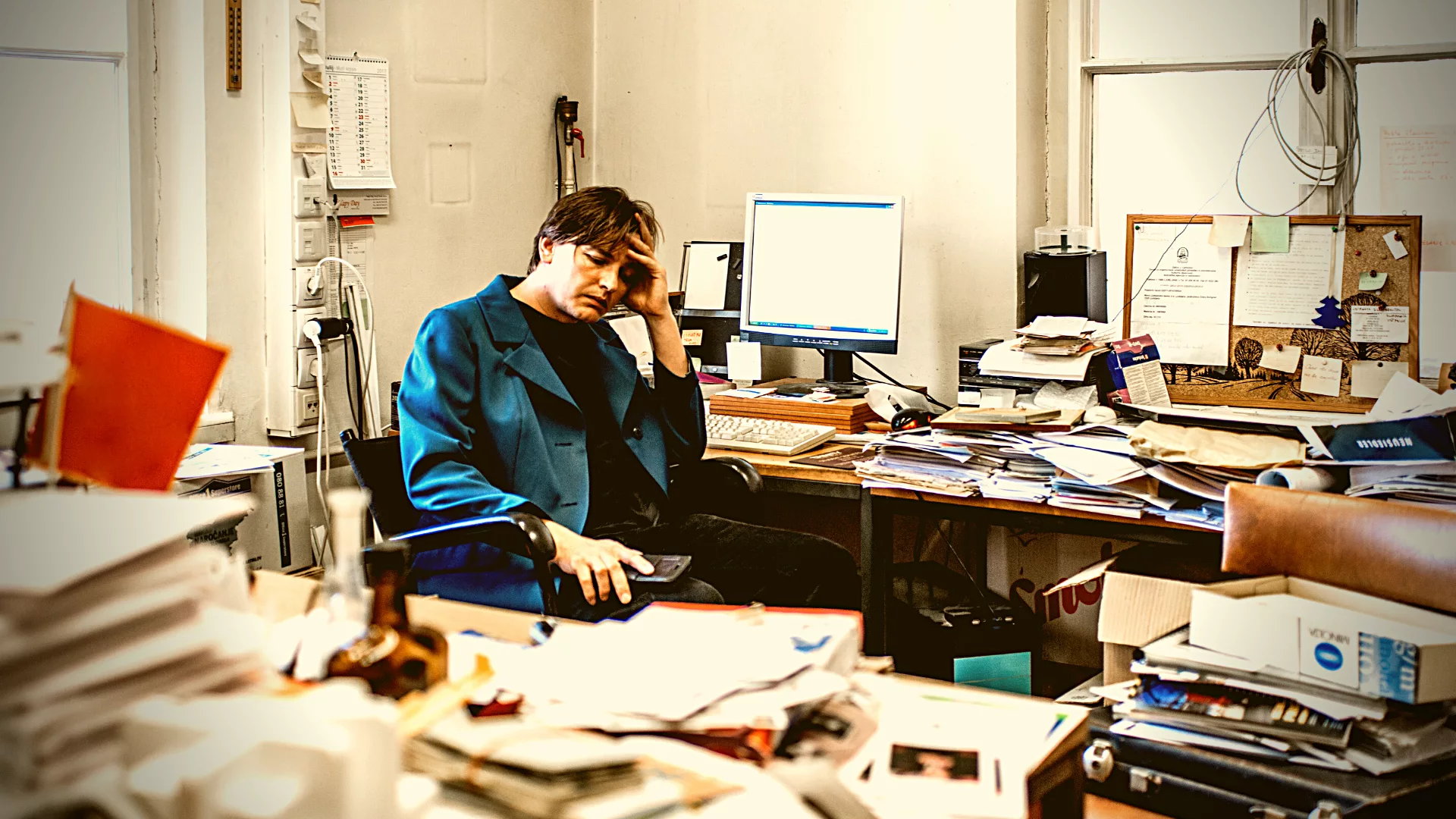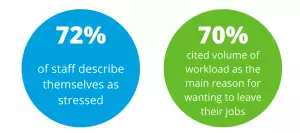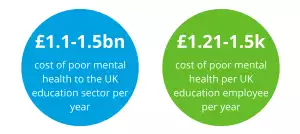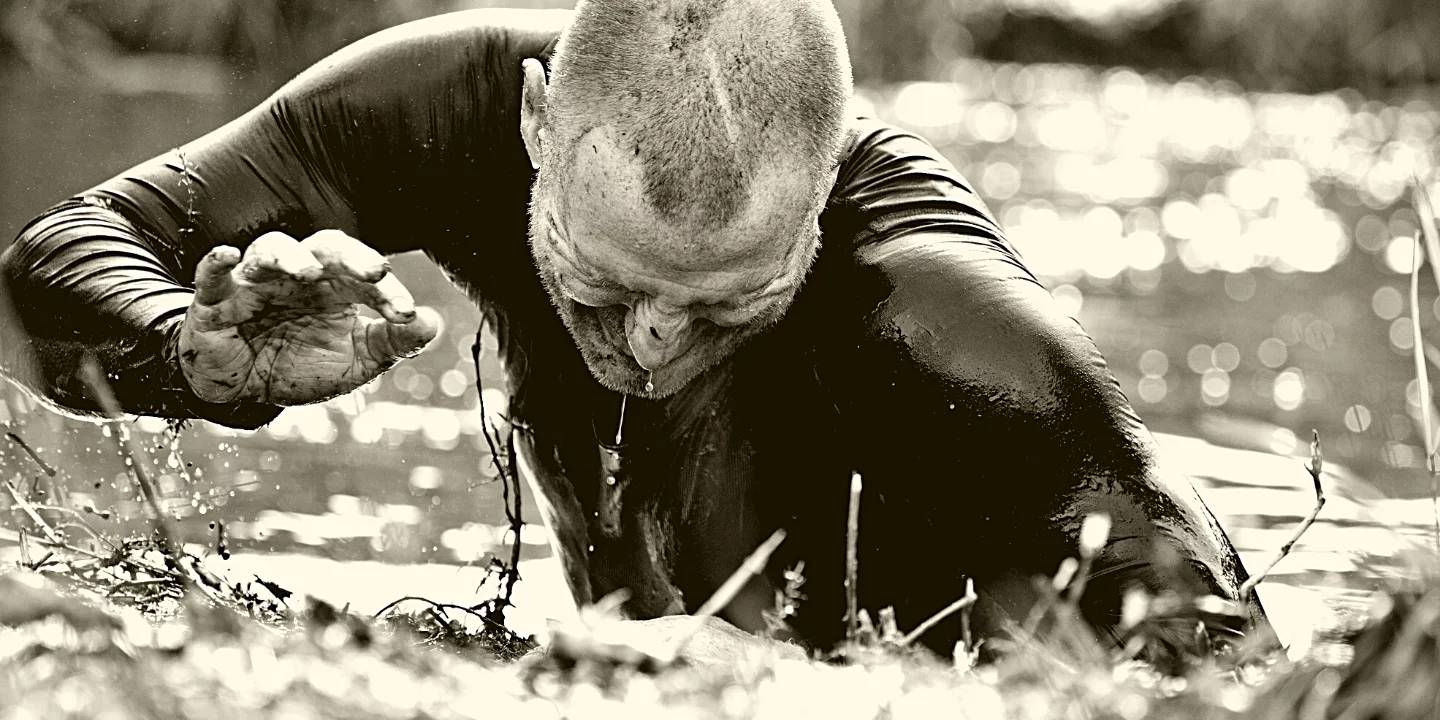stress management
If and Then… Setting the Conditions for Successful New Habits
If and Then… Setting the Conditions for Successful New Habits
By Karen Amos
I wrote in an earlier blog about a technique to check in on yourself when setting new habits for work-life balance. (Click HERE to read more).
I thought I’d share another great way to help build and maintain habits. This is to set ‘If and Then’ conditions to your actions.
Here are a couple of examples:
A few years ago I decided to start running to get fit. But…
If I got home from work and sat down with a cuppa… then I got comfy and didn't go out for my run.’
However…
If I got home from work, put down my bag and immediately put on my running kit… then I’d go straight out of the door and have my run.
__________________________________________
I also had a client who was wanting to lose weight to have a more healthy lifestyle by eating more fresh food. The problem was that…
If she did her food shopping after work when she was hungry… then she would also buy lots of junk food and chocolate at the same time.
However…
If she went food shopping in the morning, or had a healthy snack before shopping… then she didn’t have the food cravings and succumb to buying unhealthy food.
So here are a few tips to help build those habits:
- Set out your conditional ‘If and Then’ statements to identify where the problem lies (See the examples above)
- Set out an ‘If and Then’ statement that will overcome this problem
- Build this intention into your diary or to-do list, so you’re conscious of it at the beginning of the day
- Get an accountability buddy – whether it’s a colleague, friend, or family member – tell them your intention – you’re much more likely to take this action if someone else knows! This could even be an ‘If and Then’ itself!
If you’d like to find out more about building better habits, I have a couple more blogs about Setting up flags to know when you’re going off track (HERE) and Using Scenario Planning to Prevent Good Habits Turning Bad (HERE), with lots more coaching questions to help you on your way.
If you would like support with your Time Management, Work-Life Balance or general wellbeing at work, call us on 07714 855757, or email [email protected]
Find out about our training courses and coaching using the links below:
Or why not EMAIL US, or book in an informal chat using the button below. We'll find out about the support you need and provide you with a no-obligation quote.
 Karen Amos is an executive coach and founder of BrightBird Coaching & Training. She supports business owners and managers who are feeling the pressure, to get the best out of themselves and their teams. She brings a practical, down-to-earth approach to improving working lives through better leadership, communication and working relationships.
Karen Amos is an executive coach and founder of BrightBird Coaching & Training. She supports business owners and managers who are feeling the pressure, to get the best out of themselves and their teams. She brings a practical, down-to-earth approach to improving working lives through better leadership, communication and working relationships.
Ready to set a better work-life balance? Here’s how to stay on track…
Ready to set a better work-life balance? Here’s how to stay on track…
By Karen Amos
What is it about September? I get more of a giddy feeling and those ‘new start’ vibes than I do at the new year.
I guess it’s just the programming I experienced in my early years of starting back at school – new teacher, new clean text books to cover in really bad wallpaper… (Showing my age now!) and best of all, a new pencil case and stationery! (That’s still a biggie for me!)
The thing is, whether we’re working in education or not, this is a very popular time to make a 'new start'. The gym I attend is busier in September and October, everyone’s had a great summer holiday and people are ready to finally take control of that ever-elusive work life balance. Then reality kicks in, other people’s stuff becomes your stuff, the nights draw in, carb-rich food beckons and before we know it, we’re right back in our old, unhelpful habits.
So how to stop that slide?
I don’t believe it’s inevitable, but I’m not going to pretend it’s easy to do.
One key factor is being conscious of what’s going on. I wrote a blog post a while ago about boiling frog syndrome and that’s definitely one of the problems. (Click HERE if you’d like to find out more…)
Basically, boiling frog syndrome says if a frog is dropped in a pan of boiling water, (Yeah, I know, but don’t shoot the messenger, I didn’t invent the concept!) it will immediately recognise it’s too hot and jump out. But if we place the frog gently into luke-warm water and gradually warm it up, it will stay in the pan and boil to death, as it doesn’t recognise the water is too hot until it’s too late.
We too are that boiling frog. We fail to recognise when things are going awry until they’re having a detrimental impact on our time and wellbeing.
You know how it goes. You’re determined not to work every evening and weekend this time and you’ll definitely stick to your new healthy eating regime. But just one piece of work for a deadline on one Sunday evening, quickly becomes every evening and before you know it, you’re grabbing a handful of biscuits on the fly because you were too tired to make your healthy pack-up on a morning.
The solution? – Little Flags!
This is why I like to introduce my ‘little flags’ to clients. These flags are mini advance warning systems we can set in place when things are going well – i.e. right at the beginning of implementing our new habits. This means we’re in a good position to think clearly about the situation, without being overly influenced by outside influences and unforeseen circumstances.
Here are a few coaching questions to help you set out good habits and flags, ready for your new start:
- What is it that I would like to change?
- How will I know when I have succeeded? (What will be happening/ what will I be doing/hearing/seeing/feeling?)
- What are the ‘flags’ that will tell me I’m going off track? What will these be telling me?
- What action can I take to remove these now?
- What action will I take if one of my flags pops up to get back on track quickly?
I have a couple more blogs about Creating the Conditions to Succeed (HERE) and How to Prevent Good Habits Turning Bad (HERE), for more coaching questions to help you on your way.
If you would like support with your Time Management, Work-Life Balance or general wellbeing at work, call us on 07714 855757, or email [email protected]
Find out about our training courses and coaching using the links below:
Or why not EMAIL US, or book in an informal chat using the button below. We'll find out about the support you need and provide you with a no-obligation quote.
 Karen Amos is an executive coach and founder of BrightBird Coaching & Training. She supports business owners and managers who are feeling the pressure, to get the best out of themselves and their teams. She brings a practical, down-to-earth approach to improving working lives through better leadership, communication and working relationships.
Karen Amos is an executive coach and founder of BrightBird Coaching & Training. She supports business owners and managers who are feeling the pressure, to get the best out of themselves and their teams. She brings a practical, down-to-earth approach to improving working lives through better leadership, communication and working relationships.
5 Tips to Help You Switch Off From Work
5 Tips to Help You Switch Off From Work
By Karen Amos
I see a lot of posts on social media about people who find they can't switch off during the holidays. Is this you? Whether you're going away somewhere or having a break at home, the feeling that your long awaited holiday is finally here, but your mind's whirring like a machine and all you can think about is how many jobs there are to do when you get back - if not before!
As a note of reassurance here, you're not alone. The pace of the working week can seem relentless. For some the 'end of the (working) day' never really comes, particularly with the advent of home-working. This means we're living in an 'Always On' state of high arousal levels and stress.
In simple terms, this means rather than your adrenaline response shutting off, allowing your stress to ebb and flow naturally, your brain has its foot on the gas pedal and keeps it there. This response is supposed to be fleeting - just long enough for you to get yourself out of imminent danger. In the case of workplace stress, it can remain in place. For months sometimes. This leaves your body and brain unable to simply flick the switch to turn off the response, even though it's not needed any more.
So what to do? Here are a few tips and coaching questions to help train your brain to lift its foot off your stress gas pedal, so you can work and rest productively. Remember, the aim isn't to solve all of these in one go. No point ending up more stressed out by trying to fix your stress levels! Instead, pick one area and take one small action at a time...
Tip #1:
See time off as an investment - Explore and clarify to yourself how you will be more productive if you take time off to rest, whether that's for an evening, a weekend or a holiday. Set out clearly what you would gain - naming it makes all the difference, then you know what you're aiming for.
Tip #2:
Make a list of everything that needs to be done - Include everything, big or small. This allows you to stop worrying that you’ve forgotten something and allows you to stop spinning those mental plates. Remind yourself you can add any jobs, when they come into your head as you go along.
Tip #3:
Prioritise what needs to be done – Do a reality check and ask yourself - Is this thing possible? – is it essential? – Also ask yourself what would happen if this wasn’t completed before the end of the month, or if you were off sick? Chances are most of these tasks will be less 'urgent' and 'important' than you feel they are right now. Where you can, block out things into a basic timescale or planner.
Tip #4:
Switch off your media – This means no checking in on emails and social media. Give yourself a digital detox and if you find this makes you anxious or you have such strong ingrained habits to pick up your phone, put your phone or laptop out of reach at least for a short while.
Tip #5:
Find something practical to do – If you engage in a practical activity, you're more likely to be distracted from the anxious feelings, at least for a while. Get outdoors for some exercise. Not only is this a great stress-buster, it will also help you to sleep. Whether it's indoors or outdoors, book activities in that you enjoy and revel in that restorative distraction. Why not catch up with friends and family too? Having a laugh and talking with others is a great distraction. Just stick to those positive people in your life and avoid the 'joy stealers'!
Hopefully, these will help you set some positive habits and ensure you have some quality time off so you're well-rested and on top of your game when you return to work. In the meantime, here's wishing everyone a positive and productive month, no matter what you have planned!
Find out about our training courses and coaching using the links below:
Or why not EMAIL US, or book in an informal chat using the button below. We'll find out about the support you need and provide you with a no-obligation quote.
 Karen Amos is an executive coach and founder of BrightBird Coaching & Training. She supports business owners and managers who are feeling the pressure, to get the best out of themselves and their teams. She brings a practical, down-to-earth approach to improving working lives through better leadership, communication and working relationships.
Karen Amos is an executive coach and founder of BrightBird Coaching & Training. She supports business owners and managers who are feeling the pressure, to get the best out of themselves and their teams. She brings a practical, down-to-earth approach to improving working lives through better leadership, communication and working relationships.
Challenge or opportunity? You decide...
Challenge or opportunity? You decide...
By Karen Amos
As a small business owner, I don’t always have the luxury of lots of spare capacity or fall-backs when things quickly change. Such a thing happened recently when one of my support team decided to take up a new job opportunity. Whilst I’m gutted to be losing a key support, I do understand their reasons for moving on and wish them every success. Inevitably though, this still caused pressures within my business.
After my initial OMG moment, feeling like I should be a model for a Munch painting, I remembered what I did for a living, gave myself a shake and put my coaching hat on. This helped me to re-frame the situation and ask myself:
Is there another way to see this?
It was hard not to focus solely on the multitude of upcoming challenges - our brains are wired to concentrate on perceived dangers, so that's our default setting. Once I'd named what was going on, there were also many positive opportunities for my business that I might otherwise not considered. These included building future capacity, re-prioritising my offer to clients, revisiting my pricing policy and many others. It’s easy to just go with the flow, particularly when things are going well, rather than giving things a bit of a shake up. Let’s face it, who doesn’t like a bit of comfort zone now and again - again, we can thank our brain for this - keeping us out of danger and seeking safety.
It's so easy for businesses and organisations to just grow organically in response to our market or circumstances, in good times and bad, but now and again we need a good reason to go back to the drawing board.
I would just like to add this isn’t about being all Pollyanna about things. As a slightly grumpy, middle-aged Yorkshire woman, Pollyanna isn’t my default setting I can assure you! As good old Tony Robbins says, ‘There’s no point standing in the garden chanting “There are no weeds, there are no weeds” when you’re surrounded by freaking weeds! The only thing that will help is to roll up your sleeves and pull them up!’
So let’s start to see the challenges as practical opportunities for change and getting out of our comfort zone and make the most of things!
If you’re struggling with a challenge or change, ask yourself the following coaching questions:
- What are the opportunities, or positives in this challenge?
- Is there a way to slow things down a little to create some thinking space?
- If so, what are the priority things and what can I put down?
- If I was starting from scratch here, what would I choose to do?
Have you turned a challenge into an opportunity recently? Let’s share the positive mindset!
If you’d like to find out how our 1-to-1 and team coaching programmes and training can help you get ‘unstuck’ and move forward this year…
Check out our website: www.bright-bird.co.uk
Call us: 07714 855757
or click HERE to book in a short, no-obligation chat
Karen Amos is an executive coach and founder of BrightBird Coaching & Training. She supports leaders and managers to get the best out of themselves and their teams. She brings a down-to-earth, practical approach to improving working lives through better leadership, communication and working relationships.
Feeling overloaded? The solution might not be less work...
Feeling overloaded? The solution might not be less work...
By Karen Amos
I’ve just had a couple of interesting sessions with clients, exploring how to create capacity within their organisation and their life in general. Many of us know the feeling of being up to, if not over capacity and the stress, pressure and often anxiety this brings. It’s almost a fact of modern working life - that feeling there’s just no wriggle room and that you daren’t even think about what happens if one more thing goes wrong, or there’s a bout of sickness or a resignation.
I’m a coach not a magician, so I can’t manifest time that doesn’t exist – although it wouldn’t be a bad superpower would it? What I can do often feels a little magical though in the turn-around it brings people, but there’s no woo-woo involved – I simply help my clients find clarity.
Often when I start working with clients, particularly around any ‘Time Management’ type issues, they expect me to do the usual, ‘Prioritise your tasks… delegate…, etc., etc.’ There's very much a time and a place for these tools and I frequently use these along with other time management techniques, this usually isn’t my starting point.
The fact is that most time management issues stem from a mindset issue. This is a kind of good news/bad news situation though.
The bad news is that this means the root of the problem lies with how you view it, so no blaming other people for your problems. You know, the whole, 'My boss is so mean to me' routine. A bit harder to do when you're self-employed mind.
The good news is that simply changing how we think, can completely transform our situation.
When I work with my clients, we look at what’s going on… then look at what’s REALLY going on! That’s the key to coaching – getting right down to the root cause of the problem. We often find this too difficult to do on our own, as we’re viewing the world through a filter of our emotions, values, experiences and expectations. A good coach will help you work out exactly what your pressure points are and also your priority outcomes. (Hint – we often confuse activity with outcomes and these really, really are not the same thing!)
One of the questions I often ask my clients is:
What would change if you accept the fact there will always be too much to do in any given day/ week/ month/ year?
Along with:
What would you do differently if you believed your wellbeing and happiness was just as important as everyone else’s?
By asking these types of questions, I can bring a fresh pair of eyes for my clients, helping them make decisions and create the space they need to work on the stuff that really counts. So to paraphrase that paragon of Stoic philosophy, Marcus Aurelius, the difficulty is often not what's going on around us, but our response to this.
If you'd like to find out how our 1-to-1 coaching programmes can help you get 'unstuck' and move forward this year...
Call us: 07714 855757
or click HERE to book in a short, no-obligation chat
Karen Amos is an executive coach and founder of BrightBird Coaching & Training. She supports leaders and managers to get the best out of themselves and their teams. She brings a down-to-earth, practical approach to improving working lives through better leadership, communication and working relationships.
Does your wellbeing strategy add to your stress?
Does your wellbeing strategy add to your stress?
By Karen Amos
Are you working in education? Are you feeling under pressure, stressed, or that your general wellbeing just isn't that great? You probably already know this, but I'll say it anyway - you're not alone. BUT WAIT! Whatever happened to the Education Staff Wellbeing Charter? After all, it was only launched in Autumn 2021 and who doesn't love a new initiative...?
Thinking back to my time in leadership roles in the public sector, the NHS in particular, I can remember that sinking feeling when yet another ‘initiative’ landed on my desk. Not that they were always bad (although to be fair, some were shockers), but I recall that feeling of overwhelm, wondering where and how I could find the resources and time to actually implement this, without dropping another plate.
I’m not going to tell anyone working in education that they have a tough job. That’s like telling a sheep it’s woolly. There’s a degree of acceptance of an education professional's lot in working life – and by this I’m meaning everyone working in education, not just teachers - and to corrupt a song, 'a teacher's lot is not a happy one'. The fact is the statistics make grim reading.
I don’t believe there’s anything to gain in playing misery ‘top trumps’ with other jobs and sectors. This doesn’t get anyone anywhere. Many sectors have huge issues with stress and burnout, each with its own particular issues and education is no exception. The fact is however, that education does rank in the top 4 most stressful occupations in the UK. ¹
So here are some numbers:
- 72% of education professionals described themselves as being ‘stressed’ in 2021 (84% of senior leaders)2
- Unsurprisingly, this was up from an already high 64% in June 20202
- 70% of Education staff (80% of senior leaders) who considered leaving the profession did so due to workload2
- 54% considered leaving due to personal mental health and wellbeing2
I believe this is the tip of the iceberg and that the issue is significantly under-reported for many reasons. If you have time, do check out the links below for more information. (Short pause for you to laugh derisively at the word ‘time’…)
From a leadership view, I see there are two issues with wellbeing in the workplace.
Firstly, there’s an ethical issue. No-one should come to work and be made ill or unhappy. That’s my mantra. I have personal (negative) experience in this area. We can all have a rubbish day from time to time, but if we’re accepting this as the norm, then something’s seriously broken.
Secondly, there’s the financial issue - and let’s face it, this is often the deal-breaker. Few would argue against the ethics of having a healthier workplace and workforce. The difficulty lies in implementing this – either though lack of time and resources, or simply the financial pressures of balancing already stretched budgets.
NB: Whilst there’s also a legal/compliance issue with wellbeing, I’d suggest this comes from a combination of ethical and financial (i.e. costs to the state) issues.
So, if the finances are the clincher, here are a few more stats:
- 50% of all working days lost in the UK in 2020/21 were due to work-related ill health1
- Education is one of the top 3 most stressful sectors in the UK 1
- Poor mental health amongst employees costs £42–45 bn in the UK each year - This includes the costs of absence/presenteeism and turnover3
- The cost of poor mental health to the UK education sector (and public purse) is estimated to be £1.1 – 1.5 bn per year3
- This equates to £1203 - £1585 per education employee per year3
So what to do?
Whilst there’s lots everyone can do to improve wellbeing in education, it’s obvious there is no quick fix and I’ll be writing more extensively on this in future articles. In the meantime however, we should take note of the Education Staff Wellbeing Charter4 , where it states that there are no expectations that ‘managers [will] provide professional wellbeing support for which they have no professional training.' In short - you can't be all things to all people.
Instead, I suggest we should take a holistic view, rather than the traditional sticking-plaster approach. This will take time and starts with building a wellbeing culture. To do that we need to throw away any badges of honour that go with working ridiculous, impossible hours and begin meaningful conversations with those around us. This means we have to be prepared to hear uncomfortable truths. Additionally, it’s now time to check our own personal story - from one that talks about ‘overworked education professionals', to one that says ‘This is not acceptable’ and ‘I deserve more’.
- HSE – Work related stress, anxiety or depression statistics in Great Britain - 2021
- Education Support – Teacher Wellbeing Index - 2021
- Deliotte – Mental Health and Employers – Refreshing the case for investment – Jan 2020
- The Education Staff Wellbeing Charter
If you would like to find out more about BrightBird's online Positive & Productive Wellbeing Programme, click HERE.
Down-to-earth, straight-talking support for you and your team to manage stress, build resilience and time management skills and develop a positive mindset. Delivered at a time and pace to suit you.
For an informal, no-obligation chat about how we can help you, call us on 07714 855757, or email [email protected].
 Karen Amos is an executive coach and founder of BrightBird Coaching & Training. She supports education leaders and managers who are feeling the pressure, to get the best out of themselves and their teams. She brings a practical, down-to-earth approach to improving working lives through better leadership, communication and wellbeing.
Karen Amos is an executive coach and founder of BrightBird Coaching & Training. She supports education leaders and managers who are feeling the pressure, to get the best out of themselves and their teams. She brings a practical, down-to-earth approach to improving working lives through better leadership, communication and wellbeing.
Overwhelm - taking those first steps out of the swamp...
Overwhelm - taking those first steps out of the swamp...
By Karen Amos
The problem with overwhelm is... well, it's overwhelming!
Yes, I realise that's pretty obvious, but if it's really that obvious, why don't we easily sort it out and feel more in control?
Because... yes, that's right - it's overwhelming. The Cambridge dictionary describes overwhelm as 'to be too much to deal with'. (1.) So there you have it - how can you deal with something, which by definition leaves you feeling as if you can't?
Overwhelm sucks us down and dulls our responses and behaviours, sapping your energy and confidence. It's a swamp land for your productivity and wellbeing.
So here's how to deal with the stuff that feels like it's too much to deal with...!
1. Accept there is no 'one-step, easy answer' to overwhelm
Overwhelm means different things to different people, at different times. There are often several contributing factors, each of which compound the other. This is why we can't often find a way through - and why we often don't even know where to start. Acknowledging what's going on for you - and importantly, making a conscious decision to change things for the better is a great start though.
2. If you don't know where to start, start in the easiest place
Because overwhelm then leaves us powerless in its grip, we often do nothing. We don't know what the 'best' thing to do is, or what the solution is. So we do the rabbit in the headlights routine. Often though, just taking one small step can start to lift us out of the swamp. And each step out, increases our capacity to gain control, energy and impetus. So don't wait for the whole solution, just take the one small, easy step you know will lead you in the right direction.
3. Overcome the fear of switching off
Whilst we know we would benefit from taking proper time out, this can actually feel pretty scary when you're under pressure. The problem is that trying to plough through is often counter-productive, leaving us even more exhausted, but the bogeyman of letting go can really hold us in its grip. Rationalising how you will benefit from even a short amount of time out will help you make that decision. Remind yourself for example, how much more productive you will be the next day if you turn off your smart phone and have an early night, or even just finish work at a normal time for once, to go do something nice with your loved ones.
4. Break tasks and activities down
If we see a large, complex or long-term problem, it's hard to know where to even start - and the positive feelings of achievement aren't so easily found as we try to plough our way through. Instead, break your goals/outcomes down into smaller steps that you can tick off frequently. That way you can see your progress and more importantly gain the feelings of satisfaction and control that come with this. This is even true of smaller, personal habits - e.g. saying you're going to do physical exercise/training 3 times a week can seem too much and mean you don't even start. However, saying you'll go to spin class on Monday evening, do a 30 minute run on Wednesday and a long walk at the weekend can much more easily be planned in - and ticked off each day.
5. Get your priorities right
When we feel so overwhelmed with our workload, there's a danger that we end up working on completely the wrong things. These often swing between the jobs (or people) who shout the loudest, or the things that are easiest and least risky. Neither of these necessarily are the right thing though. (And if you think this isn't you, just remind yourself about the times you've ended up doing the dusting rather than tackle a gnarly task! Yeah, of course, we'd all choose dusting as our new favourite hobby right?!) Instead, take a few minutes to check through everything that's going on and ask yourself:
- What could and should be dropped off my to-do list (or even completely off my radar) at this point in time?
- Are there any quick wins here, that will buy me more time and energy moving forwards?
- What's the most important thing here?
- What are the things that no-one would really notice if I didn't do?
- If I assume I don't have time or energy to do everything that's expected of me, what will I have to put down first?
- Where's the 'noise' coming from? Is this legitimately something I should be listening to? If not, how do I tune it out?
If you were only going to do one thing right now, I'd recommend taking a few minutes away to ask yourself some of these questions. Then take one step - just one - that will start to take you in the right direction and lead you out of the overwhelm swamp.
References:
If you would like to find out more about how you and your teams can improve their time management and productivity, whilst minimising stress and overwhelm, check out our new Positive and Productive online programme.
For schools
For Business and VCSE organisations
For an informal, no-obligation chat about how we can help you, call us on 07714 855757, or email [email protected].
 Karen Amos is an executive coach and founder of BrightBird Coaching & Training. She supports under-pressure leaders and managers to get the best out of themselves and their teams. She brings a practical, down-to-earth approach to improving working lives through better wellbeing, leadership, communication and working relationships.
Karen Amos is an executive coach and founder of BrightBird Coaching & Training. She supports under-pressure leaders and managers to get the best out of themselves and their teams. She brings a practical, down-to-earth approach to improving working lives through better wellbeing, leadership, communication and working relationships.
Workload – Is this the next Emperor’s new clothes?
Workload – Is this the next Emperor’s new clothes?
By Karen Amos
Exhausted. Overwhelmed. Inundated. This is what I’m hearing and seeing around me, from clients, associates and on social media.
There’s too much work to do and too little time to do it in. And yes, there are so many things going on right now, resulting in endless firefighting and over which we have very little control. Vast swathes of staff teams going off sick with various illnesses, of which covid is only one, as an easy example.
I get the feeling of helplessness that goes with this, but can’t help but think there are also many things we CAN do something about, but often don’t.
As we come up to the festive season, this is never more needed. What should for many be a time of holiday and celebration, becomes a source of stress, anxiety and overwhelm.
This is where our mindset comes in.
Working out what we can control or influence and not expending mental and emotional energy on the things we can’t, will ensure we expend our energy in the right way. The good old Stoics and latterly Stephen Covey hit this on the nail.
That’s only part of the story though and I’m on a mission to call this out. I’m going to be the little boy to the Emperor’s New Clothes of workload…
Here are the basic facts of the modern work-life as I see it:
1. We will NEVER complete all of our workload
2. We only have a finite amount of time and energy available to us
So let’s unpick this:
1. We will never complete all of our workload.
We don’t want to think we’re failing, so we try to fool ourselves that one day… one day… we will have ticked all the tasks off on our to-do lists. The fact is that there will always be more that could or should be done. We can always do more, make things better, build on the last job… on it goes.
2. We only have a finite amount of time and energy available to us.
Despite our best efforts there are only 24 hours in a day and you will never have the energy to consistently work huge proportions of this – not if you want to stay well that is! Even if you had 36 hour days, you’d only have a certain amount of energy you could expend.
So this is why I liken workload to the Emperor’s New Clothes. No-one is calling this out. So I am.
If we accept these 2 facts as accurate, we’re left with 2 choices:
1. Accept the inevitable frustration, despair, meltdown and ill health
2. Make a mindshift in how we think about and approach our work
Doesn’t seem possible? Then check out this example:
It’s the Monday, a week before your much needed holidays. All you can think of is getting away and forgetting about work for a week or so. So you have great intentions and have made a list of all the things you’re going to achieve from your to-do list before you go.
By the end of day one, you’ve made very little inroad. In fact, you’ve actually added to your list.
By mid-week, you’re feeling the pressure. You’re nowhere near getting those big chunky pieces of work out of the way and it really doesn’t look like you’ve time to do them before Friday.
By Thursday, you’re starting to cross off some things that ‘can wait’.
By Friday, you’re crossing off most things, deciding they’re probably not that vital and guess what? For many of them, you’ll never even add them back onto your list when you return!
Which just goes to prove that much of the issue isn’t about WHAT we’ve got to do, it’s WHAT OUR ATTITUDE IS to what we’ve got to do.
Of course, there are many tools and techniques we can effectively use to manage our time and workload. I teach many of these in my training programmes, but the fact is, these alone will not solve your workload issues.
For example, I’d always advocate that people use lists to help lighten your cognitive load amongst other things. The problem is that if we don’t approach what we put on our lists with the right mindset, we’ll find ourselves writing them on kitchen rolls they’ll be that long.
Let’s face it, none of us are going to be on our death bed saying, ‘At least I got to the end of my to-do list!’
The solution to this I believe, lies in having better quality conversations – with ourselves, our managers and our teams. A conversation that says, ‘OK, this work has just landed and I’m already at or over capacity with my workload.’
- What do I need to do myself?
- What do I need to be saying to others?
Here are some coaching questions to get you started:
- If I accept it’s impossible to get to the bottom of my to-do list – what needs to happen to ensure I can still do a good job and stay well?
- What if my wellbeing was as important as getting my jobs done?
- How can I work more collaboratively with others in a way that helps everyone?
- How can I work more efficiently?
- What happens when I prioritise my work better?
- What should my response be if someone comes to me with more work?
One of the things we can say could be to our managers, at what ever level. Easier said than done in some cases I admit, but what if we were to say, ‘I’m already at capacity. Can you help me work out what I can do and when?’
I’m not saying this is always the case, but I confess that on occasions in the past, I have been that manager. The one who was so overwhelmed that when another tranche of work came in, I did a ‘dump and run’ on my team.
The result? An over-worked and disgruntled team and myself, feeling like I’d sold my values down the river.
The thing is that the solution doesn’t necessarily mean appointing more staff – although how can we ever present a valid business case if we don’t acknowledge what’s there? Often though, more staff aren’t needed, just the right support, training and advice and some better communication.
In order to truly change things for the better we need to own up. To shout out if our workload isn’t possible, as there will never be a positive change if we don’t.
If you would like to find out more about how you and your teams can improve their time management and productivity, whilst minimising stress and overwhelm, check out our new Positive and Productive online programme.
For schools
For Business and VCSE organisations
For an informal, no-obligation chat about how we can help you, call us on 07714 855757, or email [email protected].
 Karen Amos is an executive coach and founder of BrightBird Coaching & Training. She supports business owners and managers who are feeling the pressure, to get the best out of themselves and their teams. She brings a practical, down-to-earth approach to improving working lives through better leadership, communication and working relationships.
Karen Amos is an executive coach and founder of BrightBird Coaching & Training. She supports business owners and managers who are feeling the pressure, to get the best out of themselves and their teams. She brings a practical, down-to-earth approach to improving working lives through better leadership, communication and working relationships.
Top Tips for Avoiding Boiling Frog Syndrome...
Top Tips For Avoiding Boiling Frog Syndrome
By Karen Amos
As we enter this uncertain future, there are plenty of opportunities to change things for the better. We've opportunity to try new ways of working and build new habits. Equally though, there are threats that we'll slip back into old ways, despite the rhetoric and good intentions. After all, change requires effort and after a tough day at work and all the demands of modern life, I don't know about you, but sometimes that extra bit of effort is just too much to ask. (And a nice sit down with a good book is much more appealing...)
This reminds me of the Boiling Frog Syndrome...
This is a somewhat gruesome metaphor where a frog is slowly boiled alive. The premise is that if a frog is put suddenly into boiling water, it will jump out, but if the frog is put in tepid water which is then brought to a boil slowly, it will not perceive the danger and will be cooked to death. ¹ (I did warn you!)
There are several interpretations of this story, but the one that jumped out at me (See what I did there!) is the need to be aware of negative threats that arise gradually, leaving us unaware of the danger until the situation is critical and in many cases, terminal.
This led me to reflect on how this applied in real-life and here are a few thoughts and tips to avoid overcooking our frogs...
Personal Wellbeing...
It’s a strange one isn’t it? We mostly know what is good and not so good for us regarding our wellbeing - whether that’s mental, physical or otherwise - but it’s always an effort to maintain it. Good habits slip and before we know it, we’re stressed out, anxious or fighting the flab and trying to regain lost energy.
Stress and our mental health can be a very slippery slope. We accept one more task, another responsibility, lose another hour’s sleep and without recognising why, we find ourselves in tears, yelling at the kids, or slumped at the laptop wondering how to get through the day.
I’m sure many of you will recognise yourself in at least one of these examples. I train others on this stuff for a living, but it's still a constant battle to stay on track. The problem is that the downward spiral is gradual and mostly painless – until you reach the bottom.
Here are some helpful tips and coaching questions to keep your frog healthy…
-
Have a plan
Seems a bit obvious right? But without a plan, you won’t know whether things are going astray until something critical happens to remind you. With a clear plan, you can measure your progress alongside expected outcomes and take corrective action quickly.
This could be a business plan, a marketing plan, or even your own 'get-and-stay-fit' plan.
-
Get a sounding board
Whether that’s a coach, mentor, or just a trusted friend or colleague, we all need someone who has our back and who we can check in with, but more importantly someone who will give us some honest feedback and advice. Not only do we need these people, but we need to ensure we plan in non-negotiable time for this checking in, as remember that we don’t recognise the need as the water gets gradually hotter. I always ensure I've people around me with whom I can have that, 'Is it me...?' conversation - in the knowledge that they may well say, 'Yes, actually Karen... this time it is just you!'
-
Build in regular wellbeing check-ins:
Boiling frog syndrome is allowed to occur because we simply don't recognise our personal 'Red Flags' until it's too late. We're completely enmeshed in stress and often by then, it's having a huge detrimental impact on our work, life and wellbeing.
One simple way to avoid this slippery slope is to schedule in regular check-ins with ourselves. This could be as simple as scoring your stress levels on a scale of 1-10. Whilst it's a completely subjective and individual approach, it gives you the opportunity to recognise when you need to start taking some remedial action before it's too late. We discuss this much more in our Positive and Productive programme.
So to avoid boiling your frog, ask yourself these useful coaching questions on a regular basis:
-
- What are my pressure points right now?
- Is this level of pressure tolerable – if so, for how long before I need to take action?
- Would I think my current situation was acceptable for my friend/colleague/family member?
- What action would I be advising them to take?
- What are my warning signs that something needs to change?
- Is there anything I could STOP doing right now that would actually improve my situation?
- What could I replace this activity with, that would improve my personal wellbeing and that of my business/organisation/education setting?
Remember, we need to ensure we check the ‘water temperature’ regularly. Build this into your diary, perhaps at the start or end of every week – that way you won’t be lulled into inaction by the nice warm water…
If you would like to find out more about how you and your teams can improve their time management and productivity, whilst minimising stress and overwhelm, check out our new Positive and Productive online programme.
For schools
For Business and VCSE organisations
For an informal, no-obligation chat about how we can help you, call us on 07714 855757, or email [email protected].
 Karen Amos is an executive coach and founder of BrightBird Coaching & Training. She supports business owners and managers who are feeling the pressure, to get the best out of themselves and their teams. She brings a practical, down-to-earth approach to improving working lives through better leadership, communication and working relationships.
Karen Amos is an executive coach and founder of BrightBird Coaching & Training. She supports business owners and managers who are feeling the pressure, to get the best out of themselves and their teams. She brings a practical, down-to-earth approach to improving working lives through better leadership, communication and working relationships.
Feeling Overwhelmed? Try Chunking...
Feeling Overwhelmed? Try Chunking...
By Karen Amos
I recently returned from holiday feeling very rested. I was raring to get stuck back into work – I’ve loads of exciting work, opportunities and projects going on right now. The thing is I didn’t – get stuck into work I mean. I just couldn’t find the concentration required to knuckle down to the work, with the inevitable self-recrimination that brings. That just brought me more stress.
The thing was I couldn’t understand why. I love my work and all the jobs I had lined up were things I enjoy (well, apart from my book-keeping, but let’s not talk about that right now!).
So what was going on?
I’ve finally realised after a few days it was good old overwhelm. I was simply trying to hold too much in my head at once. Now those of you that already know me will know I’m a huge fan of lists, so I don’t have to hold loads of info in my head, so why didn’t they work? The answer was that the tasks felt too diverse – they were like confetti being scattered all over the place and I was spending way too much mental energy keeping it all swept into a pile.
So here’s when I decided to chunk my work.
Chunking is simply the art of pulling together similar pieces of work or information to allow our brain some space to actually work on things. There’s no right or wrong way to do this, but here’s how it worked for me…
Step 1 – I wrote down the main functions of my business – e.g. financial, marketing, clients, etc.
Step 2 – Under each of these I listed the main things I need to achieve over the next month – e.g. follow up clients, arrange meetings with contacts, write blogs…
Step 3 – I created a ‘Drop List’ on my One Note app where I can check in with these mini ‘chunks’ and ‘drop’ any new items in there as they arise, or that I may have missed.
Step 4 – Check in at the beginning of each week to plan in time to address each of these issues.
But isn’t this just adding another layer to an already significant workload?
In fact, this is just the opposite. Now I’ve captured everything I need to do and organised it into meaningful ‘chunks’, I have freed up brain space to actually work on the tasks. This also gives me opportunity to schedule work into my planner, helping me to estimate how much time I’ll actually need to complete the things I’ve identified.
Along with this, as a person with strong visual preferences, I've colour coded each chunk too. This helps my brain to separate these out.
The result? A clear focus, less anxiety and more productivity. Give it a try if you’re feeling that you’re just not making a dent into your tasks.
If you would like to find out more about how you and your teams can improve their time management and productivity, whilst minimising stress and overwhelm, check out our new Positive and Productive online programme.
For schools
For Business and VCSE organisations
For an informal, no-obligation chat about how we can help you, call us on 07714 855757, or email [email protected].
 Karen Amos is an executive coach and founder of BrightBird Coaching & Training. She supports business owners and managers who are feeling the pressure, to get the best out of themselves and their teams. She brings a practical, down-to-earth approach to improving working lives through better leadership, communication and working relationships.
Karen Amos is an executive coach and founder of BrightBird Coaching & Training. She supports business owners and managers who are feeling the pressure, to get the best out of themselves and their teams. She brings a practical, down-to-earth approach to improving working lives through better leadership, communication and working relationships.
- 1
- 2



